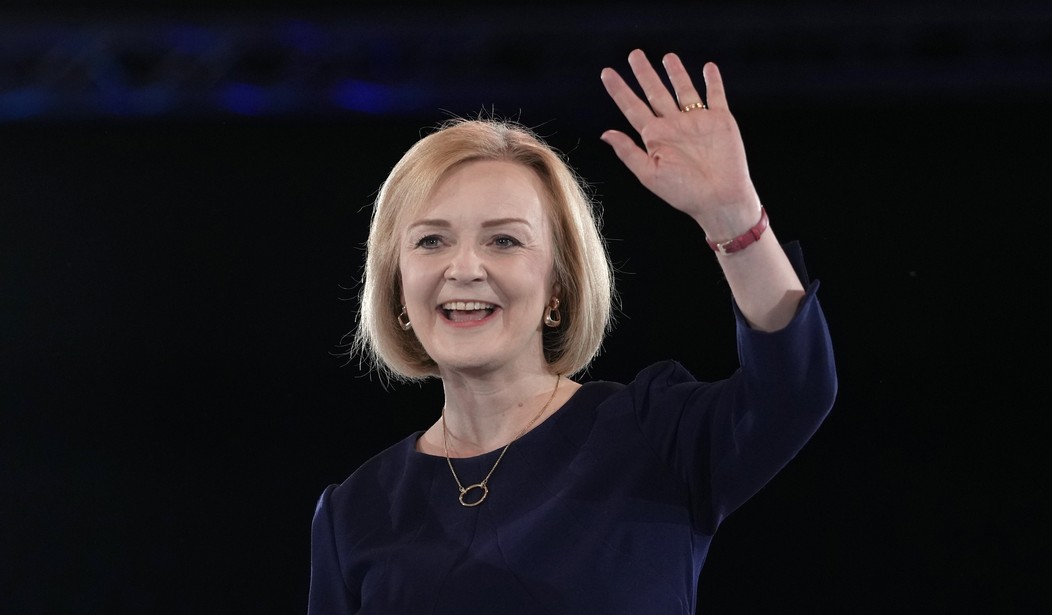Shortly after taking over as the new U.K. prime minister, Liz Truss announced plans to fight inflation by capping household energy prices over the next two years. Blimey! Billed as the most free-market prime minister since Margaret Thatcher, Truss's first major move is a counterproductive scheme that will prolong the United Kindom's energy woes and increase its budget deficit. What could go wrong?
"Extraordinary challenges call for extraordinary measures, ensuring that the United Kingdom is never in this situation again," Truss declared. When you hear phrases like this, beware of bad policies on the way. Starting in October, the government will limit the energy prices charged to households for two years and businesses for six months. It will make up the difference to utility companies with subsidies paid for with borrowed funds. The cost of this boondoggle is forecasted to be over $120 billion.
Inflation in the U.K. has now reached 10.1%. The new policy would suggest that most of the inflation is due to hikes in energy prices. It's not. Before Russia's invasion of Ukraine, the U.K.'s CPI was already 6%, and the war pushed this up to its current levels. However, the CPI excluding energy cost is still almost 7%. Even if energy-supply problems were fixed overnight, core inflation would remain more than four times its 2015-19 average.
This is because most of the underlying surge in the U.K.'s inflation is rooted in demand factors triggered by massive fiscal and monetary stimulus in 2020 and 2021 -- something that should sound familiar to Americans. The U.K. government subsidized the wages of furloughed workers and other income-support programs, paid sick leave, made massive expansions of NHS funding and even covered meals for customers at restaurants. At the same time, the Bank of England monetized much of this additional spending from 2019 levels, flooding the economy with cash and diminishing the value of the pound.
Recommended
As a reminder, inflation is an increase in all prices (including wages) irrespective of the movement of some individual prices relative to others. It is systemwide. So, capping the price of one kind of good, in this case energy, will do nothing to reduce inflation. It will, however, create all sorts of distortions and bad incentives that will manifest painfully throughout the economy.
A good rule of policy should be "do no harm by refusing to transfer income by distorting prices." Indeed, as Alex Tabarrok reminds us in a great video for Marginal Revolution University, "A price is a signal wrapped up in an incentive." Each market price can reflect a vast amount of information about a given product, aggregated from decisions both large and small made by countless suppliers, their own suppliers and consumers. By signaling how scarce a product is and incentivizing buyers and sellers to respond, prices propel people to direct their efforts and resources in ways that do the most good.
The scarcity of energy is now signaled in its higher price, which in turn gives an incentive to consumers to use less or find substitutes. But by capping energy prices, the government will cause those prices to lie about just how scarce energy really is. Consumers will not conserve or reduce their demand as much as they should.
On energy's supply side, price controls dampen producers' incentive to provide more energy -- a terrible outcome when supplies are unusually tight. The result will almost surely be energy shortages.
The government hopes to avoid blackouts and shortages by subsidizing energy suppliers with borrowed money. While subsidies might help on this front in the short term, the accompanying fiscal irresponsibility throws gasoline on the United Kingdom's already raging inflation fire.
Now, there's no doubt that failing to keep energy prices under control would eventually lead to a severe recession in the U.K. But fueling continued energy demand with price controls and inflation with deficit spending is the opposite of a solution. A better way to go is by encouraging increases in energy supply by removing many of the existing welter of barriers to energy production and distribution that the government already has in place. To her credit, the prime minister is planning to do that too. This takes time, however.
Ultimately, the best idea would have been to avoid this mess in the first place. It's too late to avoid hamstringing energy markets while simultaneously creating so much inflation. But it's not too late to avoid doubling down on the folly that put the Brits in this unhappy position.

























Join the conversation as a VIP Member